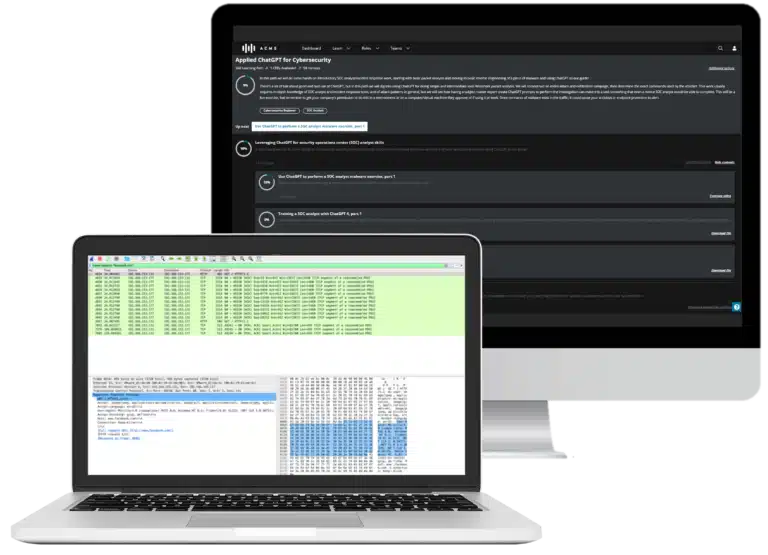IT auditor degree requirements
Introduction
The role of IT auditor is an integral one for any organization, but not just anyone can be considered for it. This role requires years of study, learning and experience that there is no substitution for. This article will detail the degree requirements for IT auditors and will provide an illustration for the impact that degrees and other education can have on your career as an IT auditor.
The IT auditor role and its responsibilities
We should begin by noting the fact that IT auditors’ individual job responsibilities can vary greatly because of the nature of the role. Their goal is focused on the specific needs of the organization, so their goals will change according to their employer.

ChatGPT: Self-paced technical training
Despite this, IT auditors are responsible for a number of common responsibilities. These responsibilities are to implement, develop, test and evaluate IT audit review procedures and controls, and to ensure that organization information and IT systems meet the organization’s needs and goals by using IT auditing standards, knowledge and creativity. To get to this point can take years of education and hands-on training, which you simply cannot build overnight.
IT auditor degree requirements
While most organizations require the lowest level of education detailed below, this article will explore the three most prevalent degree requirements: bachelor’s degree, bachelor’s degree with certification(s) and master’s degree. In keeping with what we established above, it’s important to note that organizations have different needs and therefore, different degree requirements for IT auditors.
Bachelor of Science degree from a four-year educational institution
To satisfy this educational requirement, IT auditor candidates must have earned a bachelor’s degree from a four-year college or university. To best fit the specific education requirements, you should earn a Bachelor of Science in Computer Information Systems, Computer Science and related disciplines. It may be a good move to also pick up some classroom hours in accounting or auditing courses to bolster your IT auditor knowledge base.
To get the most out of this educational requirement, it’s important to know that some courses will help you build your knowledge and skill set more than others. Focus on courses that include process analysis and design for enterprise, business information system concepts and development, database concepts for business, database design, networks and distributed systems, and project management.
You may need to use a diversified coursework strategy to pick up all of these specific skills and knowledge, but remember — the IT audit role requires a good amount of creativity coupled with a strong technical knowledge base that will allow you to quickly think outside of the box to solve problems. And being involved in such a quickly evolving field means that you will have to be a lifetime learner, so you might as well make this practice second nature right now.
If you want to spice up your educational background, consider taking courses in auditing and accounting. This will buttress your Bachelor of Science degree and will better demonstrate to organizations that you have the specialized educational experience needed to ensure you are the right candidate for the job.
Bachelor of Science degree from a four-year educational institution, plus relevant certifications
The second most desired degree requirement you may encounter is a Bachelor of Science degree from a four-year college or university, plus relevant certification. Organizations have different reasons for demanding certifications when you already have a Bachelor of Science degree — some may have more complicated IT auditor responsibilities and need their IT auditors to have a heightened level of expertise, and some may simply find that the average Bachelor of Science degree in Computer Information Systems does not arm you with enough of a skill set for the position. If an available IT auditor role requires a certification, you can expect that an elevated knowledge base will also be required.
There are several IT auditor certifications that you can earn, but what has been referred to as the gold standard of certifications is the Certified Information Systems Auditor certification, or CISA. This verifies that you have the demonstrable audit skills, knowledge and experience which make you capable to assess information system vulnerabilities, report on compliance and establish/implement controls within the organization. CISA is hosted by ISACA; more information about this certification can be found here.
Master’s degree from a four-year educational institution
For some organizations, the educational degree requirements enumerated above will not suffice for a degree. Instead, they require a master’s degree. Whether your organization requires a master’s degree or not depends on its needs, and a cursory online job search will reveal that far fewer organizations require one than a Bachelor of Science.
That being said, some four-year universities do offer a master’s degree in Information Systems and Audit Control. Unlike Bachelor of Science degrees, this master’s program will be even more on point subject matter-wise. Whereas those with a Bachelor of Science in Computer Science may need to take accounting and auditing courses to prove they have the requisite specialized knowledge, having a master’s degree in this program will suffice. Georgia State University is one such institution offering this program; further information about it can be found here.
Conclusion
Being an IT auditor means holding an important, high-level position within an organization’s IT hierarchy that requires specialized knowledge coupled with a sharp, creative mind in order to help an organization meet its needs. In their search for the right candidates to fit this role, organizations will require at least a Bachelor of Science from a four-year college or university, and some organizations will require more advanced learning including certifications or possibly master’s degrees.
No matter which IT auditor role you zero in on in your job search, I would recommend erring on the side of being more educated than what the role specifically advertises in its job posting. The IT auditor role requires creative thinking with a high-level skill set, so the more you can prove you have mastered this area of IT, the better you will look compared to the competition.

ChatGPT: Self-paced technical training
Sources
- What is an IT auditor? A vital role for risk assessment, CIO
- Description of an IT Auditor, Chron
- Certified Information Systems Auditor (CISA), ISACA
- How Can I Become an IT Auditor?, Learn.org
- Master of Science in Information Systems Audit & Control, Georgia State University





